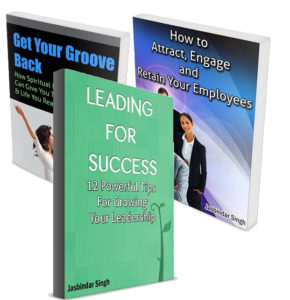 “The oak fought the wind and was broken, the willow bent when it must and survived.”
“The oak fought the wind and was broken, the willow bent when it must and survived.”
– Robert Jordan
Tension, stress and relationship challenges are all part and parcel of our crazy, busy lives – work and home.
Can you recall the last time you felt stressed and challenged at work or home? Perhaps this was in the recent past or perhaps it is right now that you are facing some big challenges?
The key to our resilience is not so much that these stressors are there but how we deal with it.
The two extreme strategies that don’t work are avoidance – wishing that the issues would magically disappear, using escape methods such as food, alcohol and drugs or “blowing up” as we vent and take out our frustrations and anger on someone else. This is even worse when the ‘someone else’ is an unsuspecting spouse or someone close to us.
It has been a while but I still recall how shocked I was when I first discovered that a seemingly “very together” senior team member actually resorted to using anger to control people and to dominate. Needless to say, they did not last very long in that role.
What works is that instead of reacting and being at the mercy of our emotions, we develop our emotional intelligence and adopt a more constructive, problem-solving approach to whatever we are facing. This is not always easy but necessary.
So how do you respond when you get stressed? What strategies work best for you when your resilience gets tested?
There are many things we can do to build our resilience and capacity to deal with stressful situations.
Here are a few pointers for your reflection:
- Develop your self-awareness
Get to know yourself better. What are your triggers? What things get you going? For example, it could be when you feel your values have been attacked or when someone challenges your competence. It could even be those subtle signs like a smirk or other non-verbals such as a particular look from someone.
We all have our default ways of being and reacting. Becoming emotionally intelligent means getting to know our own feelings and emotions more intimately.
Rather then reacting, naming our emotions and triggers such as “I am having the thought that “I am out of control or I am having a fear thought” and staying calmlong enough can enable us to find another way of responding.
Naming your thought provides that bit of distance and objectivity from being the thought itself!
Responding can mean just noticing the emotions and letting them waft by like clouds in the sky or leaves in a stream rather than getting hooked by these thoughts and emotions.
This way we get to have a tad more ‘relaxed’ and accepting relationship with that emotion rather than being in its grip.
- Have that courageous conversation
Who do you need to have a courageous conversation with?
Whatever is present between two people that is causing relationship difficulties doesn’t just go away. Issues tend to fester and get worse with time. Any avoidance strategy will take you only so far and ‘keeping peace’ at any cost can turn out to be very costly!
Think about how you might approach the other party to talk things through.
Hopefully they are open to this as well. Plan your approach but also be flexible to their input and experience.
Choosing your words and timing is important. For example, with an issue with your boss, if they are already under pressure with an upcoming Board meeting, you may want to leave your chat till after the meeting.
- Get a perspective
When we are stressed we are deep into whatever is going on for us. It can be hard to “see the wood for the trees.”
Having an objective “other” to sound out can ease the stress and burden of carrying it all on our shoulders as well as providing a perspective, new insights and clarity.
Reminding ourselves of our deeper values, the bigger picture and commitment to the relationship can make all the difference in how we proceed in our conversation with them.
- Mindfulness
Whether it is through meditation or simple mindful strategies like breath awareness, present focus exercises or something else, develop your capacity to be in the moment. This will expand your mental and emotional resources and capability.
Responding rather than reacting is a more resourceful place to come from.
- Coach or Mentor
If you company has a coaching culture, you may ask to work with a coach or get an external coach. If the company isn’t able to offer this, you may wish to look into your own network and find out who could be an informal mentor to you.
Having someone you can discuss those tricky issues with confidence and confidentiality can not only be a vent and perspective giver but also be great for your leadership development.
- Emotional Intelligence
Emotional intelligence (EI or EQ) skills help navigate the soft side of business and personal relationships. Skills such as self-awareness, self-control and management, awareness of others and managing these relationships well are all useful competencies to grow.
It is our EQ that helps us be smart with our IQ!
For example, when faced with a negative or different viewpoint from yours, try not to take this personally but see it simply as a legitimate different point of view. Maintain your own composure and value your own perspective.
- Self-Compassion
Be gentle with yourself and cut yourself some slack – things may already be challenging enough without you penalising yourself further. Self -recriminating thoughts like, ‘I’m such a loser or failure” will drag you further into the negative arena.
Save that energy and channel towards looking for solutions and or best outcomes. Remind yourself of the last time you had a tricky scenario and you were successfully able to work your way out of this.
At work, every day you are reinforcing your brand and reputation through how you conduct yourself. Build a positive reputation based on your strengths and resourcefulness.
And sometimes we make mistakes! It is how we deal with these that matters – the responsibility and actions we take along with the lessons we learn – that makes all the difference.
So even in your busy times, make sure to take some time out to re-visit what truly matters to you including your three to five core values – the ‘why’ underlying your actions and endeavour to live purposefully and with compassion.






 Follow Jasbindar on Twitter
Follow Jasbindar on Twitter



